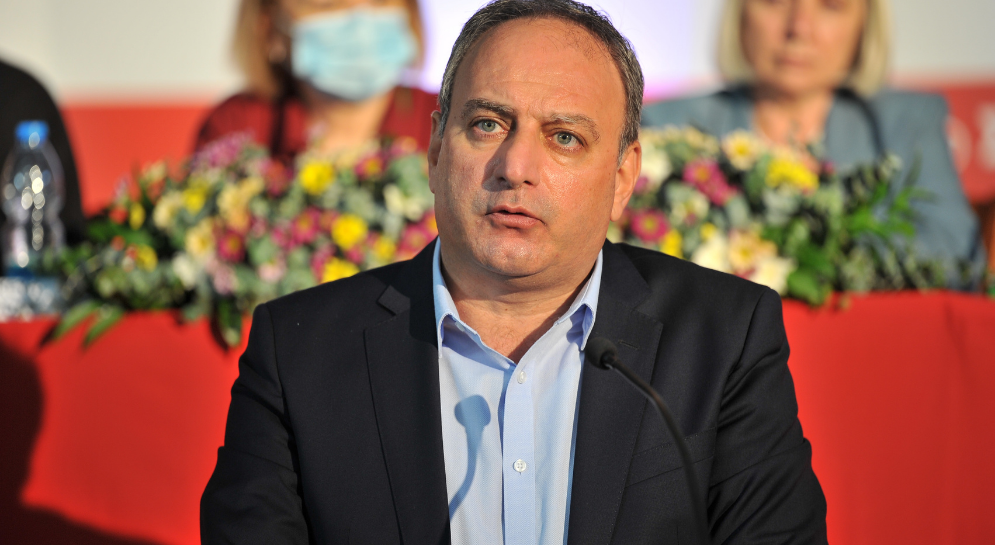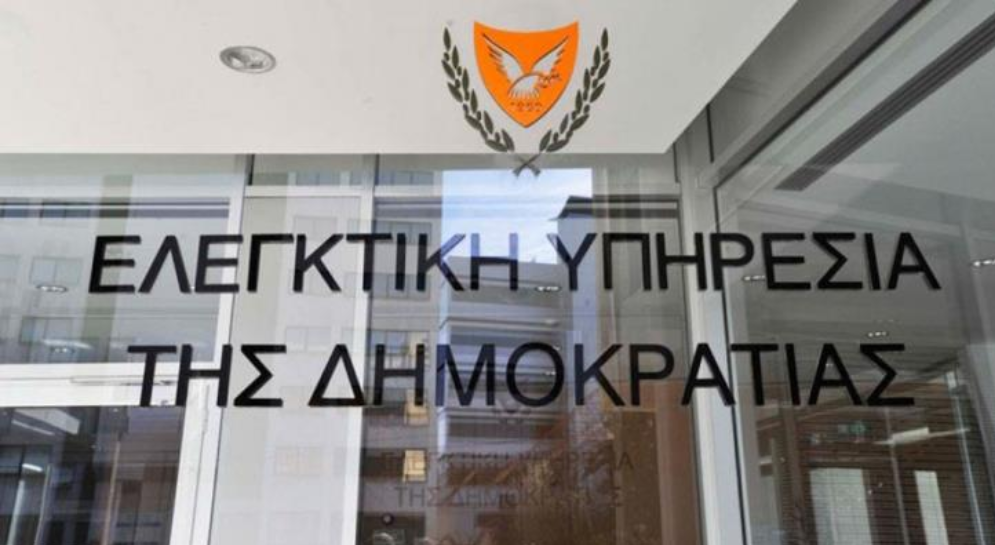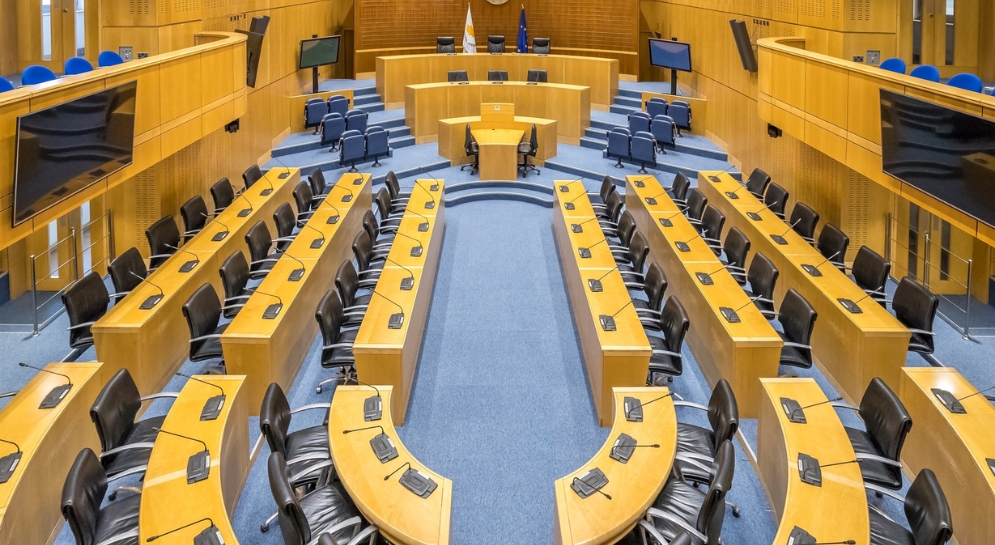
Interview with the General Secretary of AKEL Stefanos Stefanou
The unproductive and passive passage of time leads to partition
Sunday 7th November 2021, ‘HARAVGI’ newspaper
QUESTION: How does AKEL assess developments on the Cyprus problem?
SS: There is a deadlock on the Cyprus problem and an absence of any negotiations since the failure of the Crans Montana conference and from there onwards. In addition, an intensification of Turkey’s provocative actions has been observed. The situation we are confronted with was entirely predictable and those forces and circles who say they are surprised by subsequent developments confirms that they do not understand the history of the Cyprus problem.
The Secretary General of the UN in the Report he submitted apportioned responsibilities on both sides for the failure at Crans Montana. From the moment he had heaped praise on Turkey, and thus exonerated Turkey, it was entirely to be expected – and we had warned about this – that Turkey would exploit the situation to impose new fait accompli, which would further complicate the prospects of a solution to the Cyprus problem. Turkey began with provocations in the Exclusive Economic Zone of the Republic of Cyprus and subsequently proceeded with illegal drillings and obstructed vessels, followed by its illegal actions in the enclosed area of Famagusta.
It is obvious, and confirmed for the umpteenth time, that the unproductive passive passage of time serves those forces and circles who, either overtly or covertly, are in favour of partition. And this is precisely what Turkey is doing, because it knows that time is working in its favour.
Q: What can be done to keep the hope for a solution alive?
SS: The fact that Turkey continues to engage in provocative actions and violate the resolutions of the UN does not negate the role of the Greek Cypriot side in the efforts to resolve the Cyprus problem. The Greek Cypriot side must take specific and targeted initiatives, which if nothing else should help the Greek Cypriot side to exhaust all the possibilities to push things towards the solution.
The first thing that it must do is to return to the position of continuing the negotiations from the point where they were interrupted at Crans-Montana, preserving the acquis (agreed body of work) of the negotiations and negotiating on the Guterres Framework. This is a position that the Secretary General of the UN himself had taken too before he was discouraged by the stand adopted by both sides.
The President of the Republic on several occasions stated that he adopts the above position, but in practice he doesn’t. The President cannot say that he wants to continue from the point where we left off, preserving the convergences recorded, when he himself withdrew convergences that have already been agreed. This is where the international community questions the credibility of the Greek Cypriot side. That’s why we too understand what the President of the Republic’s chief negotiator at the talks says, that “our narratives/version of events are not convincing and are not being adopted”.
We have something to gain from the handling AKEL has proposed. For example, in the maps submitted in Geneva we were practically within reach of a convergence being recorded. There is only a small difference of 1% in relation to the territorial adjustments. The Turkish Cypriot map submitted explicitly states that the enclosed area of Famagusta and other areas of the city will come under Greek Cypriot administration in the event of a solution. For that reason, here we have a card that we must make use of.
QUESTION: How can common ground be found when the two sides have diametrically opposed positions?
SS: Either things will remain as they are – which we know will not happen, because the status quo is increasingly changing for the worse – or certain third parties, who are already intervening, will to put ideas on the table seeking to bridge the differences, and that will be dangerous, because the differences between federation and confederation cannot be bridged.
QUESTION: Do you think that the today’s Turkey we are up against can change its stand and agree to resume negotiations?
SS: In politics, when you want to do something, you look for motives and common interests. Bearing in mind what Turkey is projecting as a pretext and using as an alibi, accusing the Greek Cypriot side of not wanting a solution of the Cyprus problem, we must take initiatives.
For example, we can turn the natural gas issue, which Turkey is using as an alibi for its intransigence, into an arena of momentum for the resumption of negotiations. We are not alone in saying this. The UN Secretary General in his latest Report talks about turning the natural gas factor into a catalyst in order to create momentum for the resumption of negotiations.
We, as AKEL, have given a practical content to the UN Secretary General’s statement and elaborated a specific proposal which we have submitted to Nicos Anastasiades. It is a proposal that does not go beyond our “red lines” and is not a proposal to give in to unacceptable demands made by the Turkish side. We, as AKEL, have never told the President of the Republic, and we will never do so, to accept the Turkish Cypriot side’s position for the adoption of sovereign equality because it leads to two states. Nor have we said that we should give a share of the natural gas before the solution of the Cyprus problem.
QUESTION: How will the issue of Famagusta be addressed?
SS: If the Cyprus problem is not resolved, there is no way the issue of Famagusta can be addressed, unless we believe that things will remain as they are for another 50 years. The given situation and conditions were different in previous decades and they are different now. Time is making the whole situation worse until we reach the point where partition is an inevitable development. We must therefore move towards a solution to the Cyprus problem and not towards individual actions or by simply appealing to one’s patriotism.
Turkey is playing exactly this game, calling on the owners to take up their ownership. On the other hand, the government and the Foreign Ministry said that Turkey’s announcements on Famagusta were “communication tricks”, as they were convinced that Turkey would not proceed to drill, etc. These assessments turned out to be nothing more than illusions, just like the assessment that “if the Cyprus problem is not resolved, partition will be prevented” is an illusion.
AKEL will continue the struggle to keep the hope for a solution alive. We are not comfortable with partition.
- AKEL’s proposal could put the talks back on the rails in Crans Montana
AKEL’s proposal serves two main objectives. First, we propose that concrete steps must be taken which can convince that the readiness being declared for a resumption of the negotiations on the agreed basis of a solution is indeed sincere.
Since we understand that in the current conditions it is essential to provide serious incentives to get the talks back on the tracks of Crans Montana, we have also submitted a proposal on natural gas. The proposal on natural gas and on maritime zones starts by reaffirming the relevant convergences that have been recorded. These convergences constitute a comprehensive framework which, with the solution of the Cyprus problem, settles the maritime zones issues as a whole on the basis of international law, the management of the hydrocarbons issues and the allocation of the revenues from them.
We have not limited ourselves to these convergences, but have also taken into account the Turkish Cypriot side’s concern that these do not provide for anything prior to the solution. We therefore propose, after the conclusion of a strategic understanding, the issue of the involvement of the Turkish Cypriots in natural gas issues should be discussed, thus meeting a long-standing demand of the Turkish Cypriots.
I stress that the proposal we are making will be applicable in the event of a strategic agreement being reached. This means that the Turkish Cypriot side must come to the negotiating table; that we must discuss the Guterres Framework, agree on it and then the agreement can be activated. At the same time, we make it clear that with the solution of the Cyprus problem a federal hydrocarbon fund will be established, which will succeed the existing fund, from which no disbursements are allowed.
We also propose that, following the comprehensive settlement of the Cyprus problem, the united Republic of Cyprus and Turkey begin negotiations with a view to concluding the delimitation of the Exclusive Economic Zone on the basis of the International Law of the Sea. We would like to clarify that, irrespective of the progress on the negotiations for delimitation, once the agreement on a comprehensive settlement of the Cyprus problem has entered into force, Cyprus and Turkey will enter into talks to conclude a mutually beneficial agreement on the route of a natural gas pipeline to Turkey, provided that this beneficial from an economic and technical aspect.
________________________________________
“AKEL will do everything possible for progressive change in 2023”
________________________________________
‘The cost of living is rising and people’s incomes must be supported’
Q: In recent months, THE increases in the prices of goods and services have been a major problem for many households and small businesses. The government’s response is that “price hikes are a global phenomenon”. What’s your view?
SS: Yes, there are a global phenomenon, but there are also reasons that are related to the government’s policies. To relieve consumers, the EU itself presents a “toolbox”, but the government turns a blind eye. If it was something that affects banks, by now we would have had a bill ready in parliament from the government ruling forces, but as far as price hikes are concerned, which affects ordinary citizens, the government is doing nothing.
AKEL’s position is that immediate measures must be taken so that, firstly, the state absorbs part of the increased cost of living, especially for the middle and low-income strata. Secondly, the purchasing power of wages should be strengthened and thirdly, society should be protected from the phenomena of profiteering.
QUESTION: You had intervened as a Party in the summer on electricity bills and a few days ago you tabled a proposal to reduce VAT on electricity. Do you have any other proposals?
SS: Given that the government does not care about citizens, we reacted as a Party and submitted a proposal for a draft bill to reduce VAT on electricity from 19% to 9%. This will first and foremost help households, but also professionals who do not own companies, to greatly reduce the cost of electricity.
Another measure, which could be implemented temporarily to protect consumers from price hikes, is the imposition of a cap on basic essential goods. Cyprus was one of the most expensive countries with regards basic goods even before the current wave of increases occurred. The government can’t stand idly by and watch as prices of items such as milk, bread, oil, eggs, etc., rise continuously.
Another serious aspect is people’s incomes. Cyprus had the second biggest fall in incomes during the pandemic period across the EU. This drop in incomes was in addition to the fall in incomes as a result of the haircut on bank deposits imposed in 2013. The cost of living is rising and it is imperative that support tis given to people’s incomes. We therefore call for the full restoration of the Automatic Cost of Living Allowance (COLA), because it can to a satisfactory extent restore the purchasing power of wages.
Pursuing its usual tactics, the government isn’t discussing such a possibility. With the current government, the people cannot hope for action to be taken to provide support to the many.
QUESTION: Let’s move on to the issues of corruption, entanglement and clientelism. Do institutions operate in Cyprus?
SS: The Anastasiades government, which is full of arrogance and authoritarianism, has subordinated the majority of institutions by putting them under its control. Instead of institutions exercising scrutiny over the executive power, the reverse is happening and some are providing covering for the government.
The example of granting Presidential Palace assistants permanent civil servant status shows the extent of the government’s arrogance, and of course with the cover provided by the vast majority of the mass media.
Whenever AKEL engages in criticism, the government likes to dwell on the past, and I’ll just say if only AKEL’s criticism is to blame for all the problems. However, when foreign media ask the President of the Republic about his law firm at an EU summit, then we know there is indeed a real problem, and this is evident. The government ruling forces know it themselves, but naturally they do not admit it and are misleading the people.
Another serious issue is the damage that has been done to the credibility of the Republic of Cyprus. And the damage is great. So great that the BBC devoted a report on Cyprus entitled “The offshore President”. For the government, its response to AKEL on this issue is quite easy. The hard part is to give an answer to those who make accusations from abroad. And especially to give an answer with regards the conflict of interest that exists with the law firm that bears the name of the President of the Republic.
In any other country, if what is happening in Cyprus were occurring in another country, we would have resignations. Here in Cyprus, not only are the government ruling forces not resigning, but they are trying come out on top.
Why doesn’t the government spokesman respond to the BBC or the “Guardian” newspaper by providing facts? The answer is very simple: Because these mass media cannot be silenced or controlled, and that is precisely why they confine themselves within our borders where they control the majority of the media.
QUESTION: What are AKEL’s initial thoughts on the 2023 presidential election?
SS: The scenarios relating to the presidential elections have started, and some have already began their election campaign. As elections are approaching, the government ruling forces have remembered farmers, workers and various other groups…
AKEL will discuss the issue of the presidential elections in an orderly manner, as it does every time, in line with the Party’s procedures, so that we can fulfill a very specific objective we have set. That is to say, we must exhaust every possibility, always within the framework of the procedures and preconditions AKEL sets with regards alliances, so that we can achieve progressive change.
Cyprus can no longer withstand the Anastasiades-DISY government, which is driving Cyprus back many decades. Under the DISY government, the rule of law has been undermined as never before. The welfare state has been dismantled, while corruption and entanglement/interwoven interests have reached unprecedented heights. As for the Cyprus problem, the government’s policy gives Turkey room to pursue the path of the permanent partition of Cyprus unhindered. Everything is crying out that things must change in our country.
QUESTION: Have there been any thoughts about the profile of the candidate?
SS: No, not yet. However, besides the profile, the candidate must also have a programme that meets AKEL’s fundamental positions. This will be done in the period ahead, after first discussing the issue in the Party’s leadership bodies.
The message I would like to convey to the people is that AKEL will do everything it possibly can to enable us to have those preconditions to win the presidential elections. We will for sure devote all our efforts to do what the majority of the people are demanding, namely that DISY is ousted from power and we have a President with a progressive programme that can achieve progressive change.
“The aim is to better organise our members and actively involve them in party activity”
QUESTION: Taking into account the results of the recent elections, what needs to change in the Party’s functioning?
SS: The Party Congress has pointed out key guidelines in this direction. The first is to improve AKEL’s internal functioning. Better organisation of members and their active involvement in Party activity is an important task, not for action’s sake but in order to protect society from anti-social policies and strengthen its gains. We are also discussing, at the level of party structures and procedures, how to restore the relationship with the people who share our political agenda and position themselves within the spectrum of the Left.
Within the framework of improving the elaboration and production of policies, ensuring quicker responses, submitting and promoting specific proposals for the benefit of society, we have already proceeded to restructure and reorganize the Party’s Auxiliary Bureaus aiming at upgrading the AKEL’s political intervention through concrete policies and proposals. All this within the context of a reciprocal relationship with society, but also of the Party’s intervention in decision-making centres.
In addition, we are seeking to enhance the Party’s relations with the wider society, but also our relationship with movements that have common goals and positions with AKEL, either on specific or general issues.
More generally, as regards the Left’s course in the modern era with the policies of the Right dominant, the need for left-wing progressive policies is highlighted. While times are increasingly “giving birth” to the agenda and role of the Left, we are unfortunately witnessing at an electoral level that in many cases the Left is not being strengthening its forces. This may seem a contradictory phenomenon, but it can be explained.
Contemporary reality is undermining the principles and values that the Left stands for, such as social solidarity, collective action and spirit and a human-centred approach to issues. The Left has a huge task in these conditions.
Bearing in mind the supremacy of our class and political opponents in means, the Left must examine how to build bridges with movements and factions that share the Left’s political agendas, how we succeed in building and strengthening fronts of resistance against powerful interests and big capital, forging unity even through diversity.




